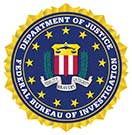|

 |
FBI
Update on Sony
Investigation
Washington, D.C. December 19, 2014
Today, the FBI would like to provide an update on the status of our
investigation into the cyber attack targeting Sony Pictures
Entertainment (SPE). In late November, SPE confirmed that it was the
victim of a cyber attack that destroyed systems and stole large
quantities of personal and commercial data. A group calling itself the
“Guardians of Peace” claimed responsibility for the attack and
subsequently issued threats against SPE, its employees, and theaters
that distribute its movies.
The FBI has determined that the intrusion into SPE’s network consisted
of the deployment of destructive malware and the theft of proprietary
information as well as employees’ personally identifiable information
and confidential communications. The attacks also rendered thousands of
SPE’s computers inoperable, forced SPE to take its entire computer
network offline, and significantly disrupted the company’s business
operations.
After discovering the intrusion into its network, SPE requested the
FBI’s assistance. Since then, the FBI has been working closely with the
company throughout the investigation. Sony has been a great partner in
the investigation, and continues to work closely with the FBI. Sony
reported this incident within hours, which is what the FBI hopes all
companies will do when facing a cyber attack. Sony’s quick reporting
facilitated the investigators’ ability to do their jobs, and ultimately
to identify the source of these attacks.
As a result of our investigation, and in close collaboration with other
U.S. government departments and agencies, the FBI now has enough
information to conclude that the North Korean government is responsible
for these actions. While the need to protect sensitive sources and
methods precludes us from sharing all of this information, our
conclusion is based, in part, on the following:
Technical analysis of the data deletion malware used
in this attack revealed links to other malware that the FBI knows North
Korean actors previously developed. For example, there were
similarities in specific lines of code, encryption algorithms, data
deletion methods, and compromised networks.
The FBI also observed significant overlap between
the infrastructure used in this attack and other malicious cyber
activity the U.S. government has previously linked directly to North
Korea. For example, the FBI discovered that several Internet protocol
(IP) addresses associated with known North Korean infrastructure
communicated with IP addresses that were hardcoded into the data
deletion malware used in this attack.
Separately, the tools used in the SPE attack have
similarities to a cyber attack in March of last year against South
Korean banks and media outlets, which was carried out by North Korea.
We are deeply concerned about the destructive nature of this attack on
a private sector entity and the ordinary citizens who worked there.
Further, North Korea’s attack on SPE reaffirms that cyber threats pose
one of the gravest national security dangers to the United States.
Though the FBI has seen a wide variety and increasing number of cyber
intrusions, the destructive nature of this attack, coupled with its
coercive nature, sets it apart. North Korea’s actions were intended to
inflict significant harm on a U.S. business and suppress the right of
American citizens to express themselves. Such acts of intimidation fall
outside the bounds of acceptable state behavior. The FBI takes
seriously any attempt—whether through cyber-enabled means, threats of
violence, or otherwise—to undermine the economic and social prosperity
of our citizens.
The FBI stands ready to assist any U.S. company that is the victim of a
destructive cyber attack or breach of confidential business
information. Further, the FBI will continue to work closely with
multiple departments and agencies as well as with domestic, foreign,
and private sector partners who have played a critical role in our
ability to trace this and other cyber threats to their source. Working
together, the FBI will identify, pursue, and impose costs and
consequences on individuals, groups, or nation states who use cyber
means to threaten the United States or U.S. interests.
|
|
|
|

